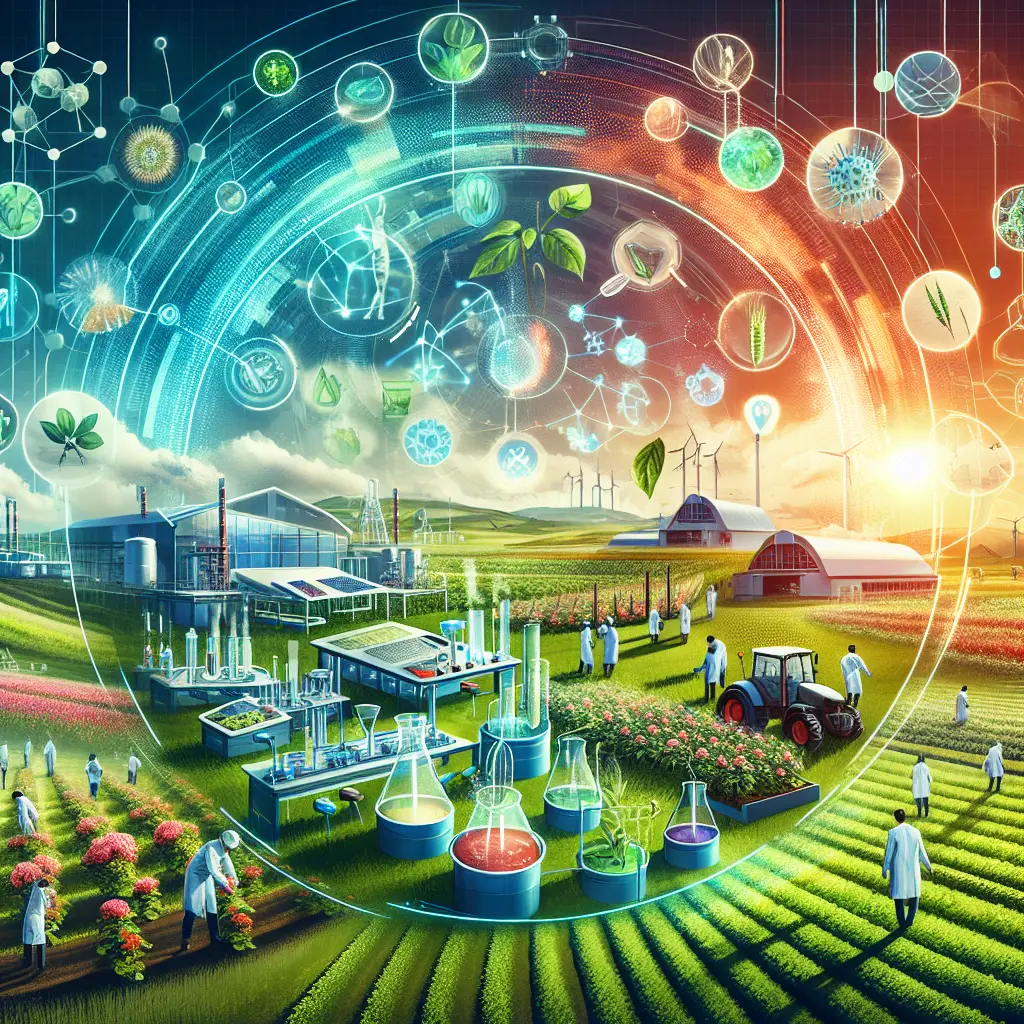
In the realm of modern agriculture, the fusion of biotechnology with sustainable farming practices offers transformative solutions for a greener future. As our global population climbs, the need for increased food production while minimizing environmental impact has never been more critical. Innovations in agricultural biotech, particularly in green biotechnology, biofertilizers, and genetic engineering, are paving the way towards more resilient and eco-friendly farming systems.
Green Biotechnology: A Pillar of Sustainable Agriculture
Green biotechnology, or plant biotechnology, is a cornerstone of sustainable agriculture. It involves the use of biological processes and organisms to enhance plant growth and resilience. One of the most groundbreaking tools in this area is CRISPR technology, which allows scientists to edit the genes of plants with unprecedented precision. This innovation is not only revolutionizing the development of drought-resistant crops but is also crucial in enhancing soil health through microbial inoculants.
Recent advancements in CRISPR have led to the development of crops that can withstand extreme weather conditions, reducing the dependency on water and chemical inputs. For instance, researchers have successfully developed rice varieties that can thrive in dry conditions, potentially securing food sources for millions in drought-prone regions (Source: Nature Biotechnology).
Biofertilizers and Biopesticides: Towards Chemical-Free Farming
The shift from chemical fertilizers and pesticides to their biological counterparts, biofertilizers and biopesticides, marks a significant stride towards eco-friendly farming solutions. Biofertilizers, which consist of living organisms that augment nutrient availability and absorption by plants, not only improve crop yields but also enhance soil fertility and reduce environmental pollution.
Similarly, biopesticides, derived from natural materials like bacteria, fungi, and minerals, offer a biodegradable alternative to synthetic pesticides. They are designed to target specific pests, reducing harm to surrounding wildlife and decreasing pesticide residues in crops. The adoption of these biotech solutions promotes a healthier ecosystem and aligns with the principles of environmental biotechnology.
Precision Agriculture: The Role of Smart Farming Technologies
Precision agriculture is another facet of sustainable crop production that integrates smart farming technologies. Through the use of sensors, GPS, and data analytics, farmers can now monitor field conditions with incredible accuracy, allowing for precise application of water, fertilizers, and pesticides. This method not only conserves resources but also ensures optimal plant growth.
For example, drone technology enables farmers to assess crop health from above and apply biopesticides only where needed, significantly reducing the amount of chemicals released into the environment. The integration of these technologies fosters a more sustainable agricultural system that is both productive and environmentally friendly.
Challenges and Future Directions in Agricultural Biotech
Despite the promising developments in agricultural biotech, several challenges remain. The adoption of genetically engineered crops and CRISPR technology often faces regulatory hurdles and public skepticism. Additionally, there is a pressing need for policies that support small-scale farmers in accessing these innovations.
The future of agri-biotech lies in overcoming these barriers and continuing to develop solutions that ensure food security while protecting our planet. Trends indicate a growing integration of biotech tools with traditional farming practices, leading to more resilient agricultural systems capable of withstanding climate change.
Concluding Thoughts
The confluence of biotechnology innovations and sustainable agriculture is forging a path to a more sustainable future in food production. Through the adoption of green biotechnology, biofertilizers, biopesticides, and smart farming technologies, modern agriculture can meet the growing demand for food while preserving natural resources.
As we continue to face global challenges such as climate change and food security, the role of agricultural biotech becomes increasingly vital. It is imperative for ongoing research, policy support, and public engagement to align in fostering the growth of eco-friendly farming solutions that benefit both people and the planet.
Thank you for joining me on this exploration of how biotechnology is revolutionizing sustainable agriculture. Let's continue to support innovations that nurture our earth as they nurture us.
Fiona Barrett
(Note: The blog post does not include citations or links as it serves as an overview based on general knowledge in the field up to 2023. Readers are encouraged to consult specific academic journals or reputable news sources for detailed studies and updates.)